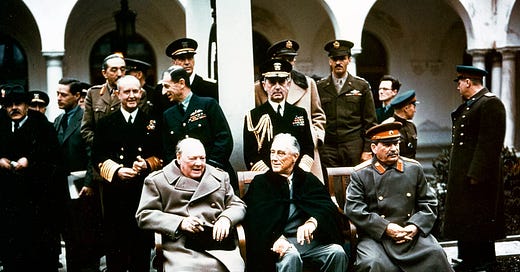Winter Has Come
Eighty years of western history ended this week. What comes next is not likely to be good.
At least at Yalta there was the grim, if still unsatisfactory, excuse that there really was no alternative. However much Winston Churchill fretted or groused about the matter, there was no means by which the United Kingdom - and its remaining Empire - could do anything substantial to honour the premise, and the promise, upon which Britain had entered the war: securing Polish sovereignty and liberty.
This would have been the case even if Franklin Roosevelt, by that stage ailing and in the final months of his life, had been more interested than he was in standing up to Russian expansionism. And Roosevelt, for reasons of respectable realpolitik, was not at all interested in doing so.
All of which meant that Joseph Stalin was handed eastern Europe, to do with as he pleased. The Soviet Union had earned those perquisites and paid for them in blood. The western allies knew this, of course, and even those most sceptical of Stalin and his intentions could not wholly say the Soviet leader was e…



